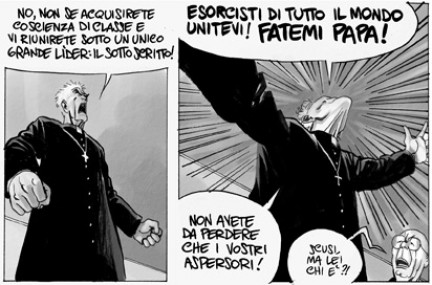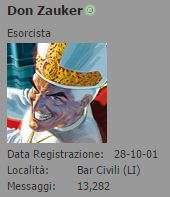A telling event here was the sanctioning of pro-Russian oligarch Viktor Medvedchuk in February, seizure of his oil pipeline and other businesses and banning of his three TV stations. Russia invaded 5 days later. 2/
·16h
The corruption frame isn't the only way to think of what Russia was trying to accomplish by invading Ukraine. But it's a very helpful paradigm, and in my view the only one that clearly makes sense on its own terms. 3/
Matt Steinglass 🇺🇸 🇳🇱 Боже милий, знову лихо
@mattsteinglass
·
16h
A good way to think about it is to imagine Putin as Tony Soprano. He has a racket that extracts wealth from a lot of businesses in the region he controls through a combination of longstanding relationships and the threat of force. 4/
Matt Steinglass 🇺🇸 🇳🇱 Боже милий, знову лихо
@mattsteinglass
·
16h
This is the way Putin's regime operates inside Russia: it seizes or threatens all the country's major businesses, especially in the energy sector, and awards them to trusted cronies, while skimming off a huge amount of vigorish.* 5/
Matt Steinglass 🇺🇸 🇳🇱 Боже милий, знову лихо
@mattsteinglass
·
16h
(*Interestingly "vigorish" comes from the Russian "vygrish" or "winnings", it seems to have been an Odessa mafia term.) 6/
Matt Steinglass 🇺🇸 🇳🇱 Боже милий, знову лихо
@mattsteinglass
·
16h
For a long time this was how Russia's control of Ukraine worked too. Kleptocratic Russia-friendly networks headed by oligarchs ensured that the gains from corruption in Ukraine flowed to Russia or to people Russia was happy with. 7/
Matt Steinglass 🇺🇸 🇳🇱 Боже милий, знову лихо
@mattsteinglass
·
16h
But then Maidan happened, and Ukraine started to turn away. It shifted from the kleptocratic Russian model and towards the rule-of-law-governed EU. 8/
Matt Steinglass 🇺🇸 🇳🇱 Боже милий, знову лихо
@mattsteinglass
·
16h
In the Sopranos analogy, a business, let's say a chain of groceries, at the edge of his territory decided they were going to stop paying protection and start trusting the police. 9/
Matt Steinglass 🇺🇸 🇳🇱 Боже милий, знову лихо
@mattsteinglass
·
16h
Tony Soprano obviously cannot tolerate this. It's not just the loss of revenue: it's that letting it go unpunished tells everybody else who's paying him protection money that they can leave, too. 10/
Matt Steinglass 🇺🇸 🇳🇱 Боже милий, знову лихо
@mattsteinglass
·
16h
So Tony decides to hit the groceries, take out the owner and ensure a more pliable one is installed, to send a message to anybody else who might get ideas. 11/
Matt Steinglass 🇺🇸 🇳🇱 Боже милий, знову лихо
@mattsteinglass
·
16h
Unfortunately it turns out the grocery clerks are packing shotguns and Tony's soldiers, who were overconfident, get shot up and retreat. Now Tony has worse problems: he's lost the grocery chain and he looks weak. 12/
Matt Steinglass 🇺🇸 🇳🇱 Боже милий, знову лихо
@mattsteinglass
·
16h
Yet he may have inflicted enough damage that his other businesses hesitate to leave; who needs the trouble? Similarly, Ukraine's economy has shrunk by a third. 13/
Matt Steinglass 🇺🇸 🇳🇱 Боже милий, знову лихо
@mattsteinglass
·
16h
Anyway, the point is that if you think about Russia's invasion of Ukraine as an old-fashioned attempt at territorial conquest, it makes no sense. States don't gain power by conquering territory anymore, this isn't the 18th or 19th century. 13/
Matt Steinglass 🇺🇸 🇳🇱 Боже милий, знову лихо
@mattsteinglass
·
16h
But if you think of it as a mob hit to intimidate states from exiting the protection racket that delivers corrupt rent streams to Russia's ruling kleptocrats, then it at least made sense--until Ukraine fought back. 14/14
Matt Steinglass 🇺🇸 🇳🇱 Боже милий, знову лихо
@mattsteinglass
·
15h
P.S. for a more detailed explanation of the anti-corruption paradigm and how it describes Ukraine's recent history, the new USAID "Dekleptification Guide" is terrific. 15/14




 Rispondi Citando
Rispondi Citando


 pare proprio che le truppe NON si stiano ritirando assieme ai civili, ed è la cosa MIGLIORE che potesse capitare agli ucraini.
pare proprio che le truppe NON si stiano ritirando assieme ai civili, ed è la cosa MIGLIORE che potesse capitare agli ucraini.










